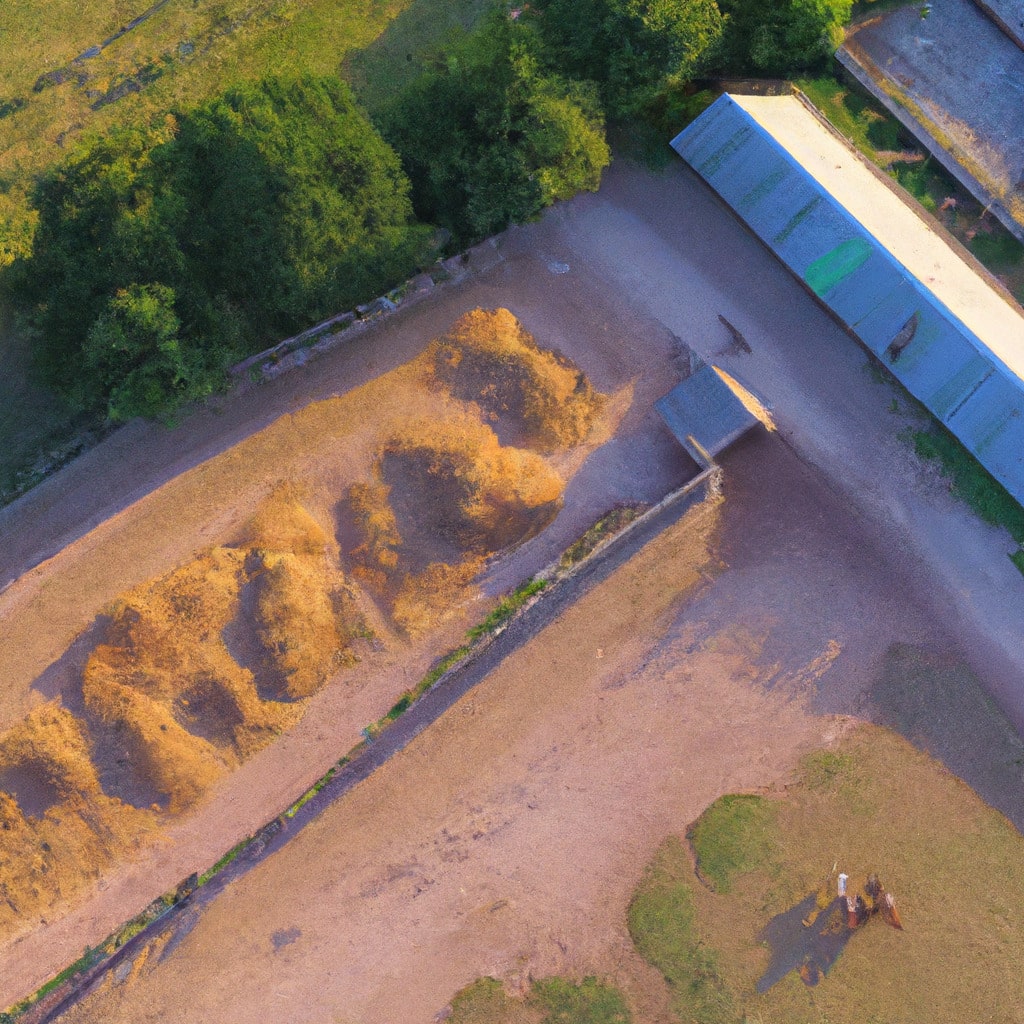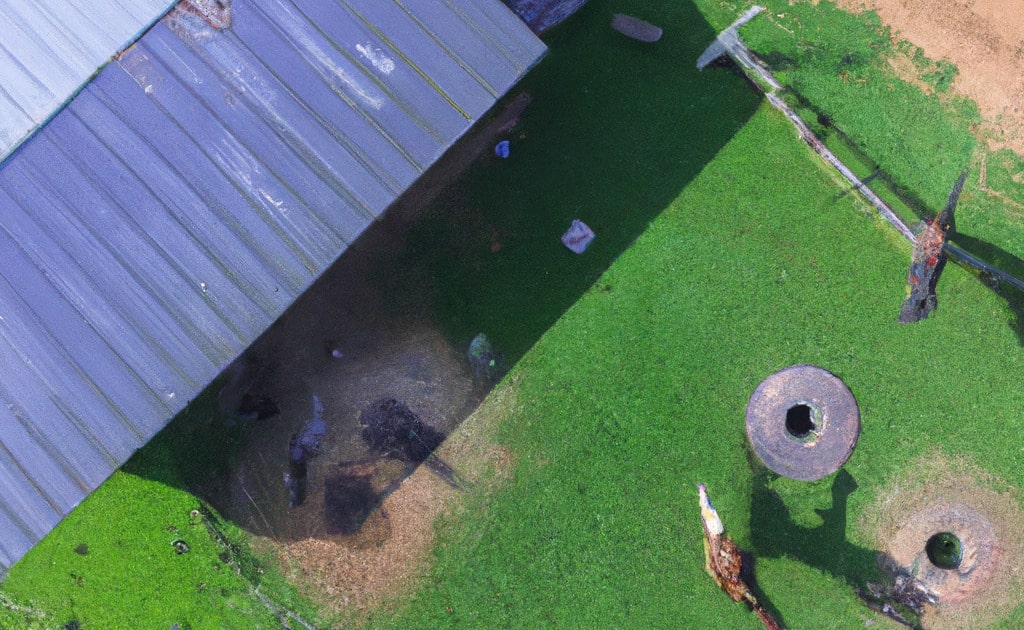Introduction
As a horse owner, one of the most important decisions you will make is where to board your beloved equine companion.
Finding the perfect home for your horse involves considering a variety of factors, such as the facilities, care provided, and the overall atmosphere of the boarding barn.
In this article, we will explore the world of horse boarding barns and provide you with valuable insights to help you make an informed decision.
Whether you are a seasoned equestrian or a new horse owner, this guide will assist you in finding the ideal boarding barn that meets both you and your horse’s needs.
So, let’s embark on this journey together and discover the perfect home for your horse!
Understanding the Different Types of Horse Boarding
When it comes to horse boarding, there are several options available, each offering different levels of care and services. Let’s take a closer look at the most common types of horse boarding: Full Boarding, Partial Boarding, and Self-Boarding.
Full Boarding is the most comprehensive option, where the boarding facility takes care of all aspects of your horse’s needs. This typically includes feeding, stall cleaning, turnout, and basic healthcare. Full boarding is ideal for horse owners who have limited time or knowledge to provide daily care for their horses.
Partial Boarding, also known as co-op boarding, involves sharing the responsibilities of horse care with other horse owners at the facility. In this arrangement, the boarding barn provides the facilities and basic care, while the horse owners contribute by performing certain tasks, such as feeding or stall cleaning on designated days. Partial boarding can be a cost-effective option for those who are willing to be more involved in their horse’s daily care.
Self-Boarding, as the name suggests, requires the horse owner to take full responsibility for all aspects of their horse’s care. This includes feeding, stall cleaning, turnout, and arranging for veterinary and farrier services. Self-boarding is suitable for experienced horse owners who prefer to have complete control over their horse’s care and enjoy the hands-on aspect of horsemanship.
When choosing the type of boarding that suits your needs, consider factors such as your availability, level of experience, and budget. It’s essential to find a boarding option that aligns with your horse’s needs and your own preferences.

Factors to Consider When Choosing a Horse Boarding Barn
When it comes to selecting a horse boarding barn, there are several crucial factors to consider. Let’s delve into the key aspects that will help you make an informed decision for your equine companion.
Location: The location of the boarding barn is an essential factor to consider. Ideally, you would want a barn that is conveniently located near your home or workplace, making it easier for you to visit your horse regularly and monitor their well-being.
Facilities: Assess the facilities offered by the boarding barn. Look for well-maintained stables, spacious turnout areas, quality fencing, and safe riding arenas. Adequate shelter, clean water sources, and proper ventilation are also vital for your horse’s comfort and health.
Quality of Care: The level of care provided by the boarding barn staff is of utmost importance. Inquire about the feeding program, the type and quality of feed provided, as well as the frequency of feeding. Ask about the staff-to-horse ratio to ensure that your horse will receive individual attention and care.
Healthcare Services: Find out if the boarding barn has a regular schedule for veterinary and farrier services. A reputable barn should have a protocol in place for routine vaccinations, deworming, and dental care. Additionally, inquire about their emergency preparedness and the availability of on-site or nearby veterinary care.
Boarding Contracts: Carefully review the boarding contract before making a commitment. Ensure that it clearly outlines the responsibilities of both parties, including fees, services provided, and any additional charges. Pay attention to the cancellation policy and any specific rules or regulations set by the barn.
Atmosphere and Community: Visit the boarding barn in person to get a sense of the atmosphere and community. Speak with other boarders and observe how the staff interacts with the horses. A supportive and friendly environment can greatly enhance your horse’s boarding experience.
Cost: While cost should not be the sole determining factor, it is essential to consider your budget when choosing a boarding barn. Compare the prices of different facilities and evaluate the value you will receive for the services provided. Remember that the cheapest option may not always be the best choice for your horse’s well-being.
By carefully considering these factors, you can find a horse boarding barn that provides a safe, comfortable, and enriching environment for your horse. Take the time to visit multiple barns, ask questions, and trust your instincts when making the final decision.
Tips for Visiting and Evaluating Horse Boarding Barns
Visiting and evaluating potential horse boarding barns is a crucial step in finding the perfect home for your horse. Here are some tips to help you make the most out of your visits.
Schedule Appointments: Call ahead and schedule appointments with the barn managers or owners. This ensures that they can allocate time to show you around and answer any questions you may have.
Observe the Overall Cleanliness: Pay attention to the general cleanliness of the barn. Look for clean and well-maintained stalls, tidy aisles, and organized feed and tack rooms. A clean environment is indicative of good management and care.
Inspect the Stalls: Take a close look at the stalls. They should be spacious enough for the horse to comfortably move around and lie down. Check for proper ventilation, adequate lighting, and secure doors and latches.
Evaluate the Turnout Areas: Assess the turnout areas where the horses are allowed to exercise and socialize. Look for well-fenced paddocks or pastures with sufficient space for each horse. The turnout areas should be free from hazards and have access to fresh water.
Assess the Feeding Program: Inquire about the feeding program and the type of feed provided. Find out if the barn accommodates special dietary needs or if you can provide your own feed. Ensure that the horses have access to clean water at all times.
Check the Riding Facilities: If you plan on riding your horse at the boarding barn, examine the riding facilities. Look for well-maintained arenas or outdoor riding spaces. Consider the availability of trails or nearby riding areas if you prefer trail riding.
Observe Horse Care: Watch how the staff interacts with the horses. They should handle the horses with care and respect. Look for signs of contentment and overall well-being in the boarded horses.
Speak with Current Boarders: Take the opportunity to speak with current boarders at the barn. Ask them about their experiences and if they are satisfied with the care provided. Their insights can give you valuable information about the barn’s reputation and management.
Trust Your Gut: Ultimately, trust your instincts when evaluating a horse boarding barn. If something feels off or if you have concerns about the care provided, it may be best to explore other options. Your horse’s well-being should always be the top priority.
In conclusion, finding the perfect horse boarding barn requires careful consideration of various factors. The type of boarding, location, facilities, quality of care, healthcare services, boarding contracts, atmosphere, community, and cost all play a significant role in making the right choice for your horse.
By understanding the different types of horse boarding, you can determine which option aligns best with your needs and preferences. Whether you opt for full boarding, partial boarding, or self-boarding, ensure that the level of care provided meets your expectations and that the facilities are safe and well-maintained.
When choosing a horse boarding barn, it is essential to evaluate the location and proximity to your home or workplace. Regular visits and monitoring of your horse’s well-being become more convenient when the barn is easily accessible.
The facilities offered by the boarding barn should meet the basic needs of your horse. Adequate shelter, clean water sources, spacious turnout areas, and safe riding arenas are all crucial for your horse’s comfort and health.
The quality of care provided by the barn staff is paramount. Look for a boarding barn with a knowledgeable and attentive team that follows a proper feeding program and provides routine healthcare services. A well-managed barn will prioritize the well-being of each horse under their care.
Reviewing the boarding contract is essential to ensure that both parties understand their responsibilities. Clear communication regarding fees, services provided, additional charges, and cancellation policies will help avoid any misunderstandings in the future.
The atmosphere and community at the boarding barn can greatly impact your horse’s experience. A supportive and friendly environment, where fellow boarders and staff share a passion for horses, can enhance your horse’s overall well-being and your own enjoyment of the boarding experience.
While cost should not be the sole determining factor, it is essential to consider your budget when selecting a boarding barn. Compare prices and evaluate the value you will receive for the services provided. Remember that the cheapest option may not always provide the best care for your horse.
When visiting and evaluating potential horse boarding barns, pay attention to cleanliness, stall conditions, turnout areas, feeding programs, riding facilities, and the overall care provided to the horses. Speaking with current boarders can also provide valuable insights into the barn’s reputation and management.
In the end, trust your instincts when making the final decision. Your horse’s well-being is of utmost importance, and choosing a boarding barn that aligns with your values and meets your horse’s needs will ensure a happy and healthy partnership.
So, are you ready to embark on this exciting journey of finding the perfect horse boarding barn for your equine companion?


